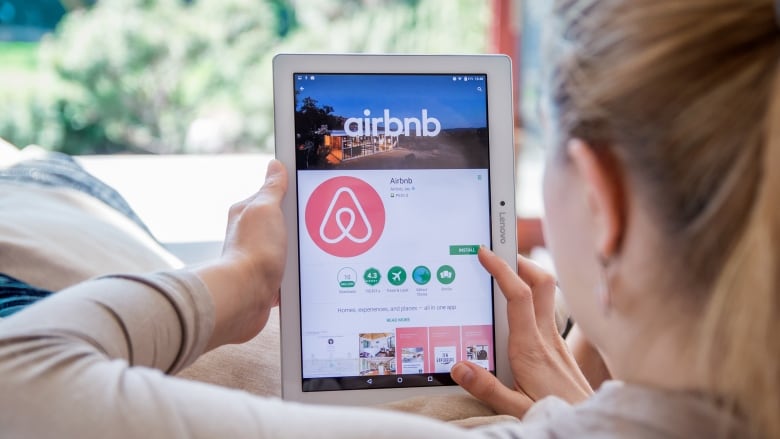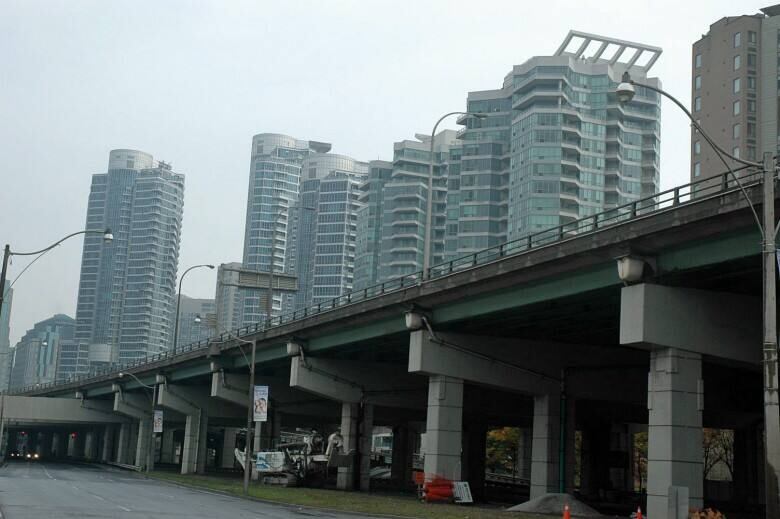Stricter bylaws for short-term rentals come into effect this week
'They could eliminate all the ghost hotel operators,' advocate says

After years of court battles, the city is enacting a newset of regulations this week that will only allow people to rent out their primary residence on short-term rental sites.
It's a move to ensure that homes, condos and apartments aren't funnelled off into the short-term rental market as investment properties, instead of being available for Torontonians to rent long-term.
The rules, which come into effect Thursday, bringhope to some inToronto's challenging rental market.
"We've been waiting for this since December 2017," saidThorben Wieditz, with FairBnb Canada, a coalition of hotel workers and housing advocates.
"This could eliminate all the ghost hotel operators that have stockpiled investment properties and run them as exclusive Airbnb units."
Starting Thursday, anyone wanting to rent out their entire primary residence, or up to three rooms in their primary residence,must register their short-term rental with the city.
From there, they'll be issued a unique number, which is now mandatory for advertising your home on any short-term rental site, from Airbnb to Hotels.com. A short-term rental is defined as a property listed for less than 28 consecutive days.
Without that number, Airbnbpolicy director Alex Dagg says people won't be able to place their property on the site.
"Part of the requirement for us as a platform is to provide data to the City of Toronto," Dagg said.
Fines range from $300 to $1,000
Exactly what format that data will take hasn't been figured out yet. People have until December 31 to register their home with the city. There's a yearly fee of $50 and it's up to the city, not the individual rental platforms, to enforce the new regulations.
In theory, someone could list two properties under the same registration ID, but because of the data that the city will be getting from these rental platforms, Carleton Grant, Toronto's executive director of municipal licensing and standards, says they will eventually be caught and fined.

"It's going to give us a number of tools to allow us to enforce and know who is participating within the rules and who isn'tand it's going to allow us to go after them" said Grant.
"There are five different fine amounts, they range for $300 to $1,000," said Grant, adding that offenders could also be removed from the rental sites.
'We need to hold the company accountable'
Although Wieditz believes Toronto's new short-term rental rules are some of the strictest out there he thinks companies like Airbnb should do more to enforce them.
But even thoughToronto is responsible for catching offenders based on the data city officials are provided from hosting sites, he said it shouldn't solely be left up to the city.
"We know that in many cities across North America and Europe, Airbnb has done very little to help municipalities enforce local bylaws and rule," said Wieditz.
"We need to hold the company accountable."
When the COVID-19 pandemic hit back in March, it exposed another layer of Toronto's extensive and problematic short-term rental market.
With travel halted, many of the condos that were listed as short-term rentals weren't making a profit so they became available as long-term properties.
"The Ice Condos for example, there's an unusually high number of furnished rentals now available to long-term tenants and this is definitely something that is a result of the pandemic," said Wieditz.
Wieditz says that by December, when the grace period is over and registration numbers are mandatory on short-term rental sites, more properties will either hit the long-term market or go up for sale.
"Looking at the data, there are over 7,000 homes that are currently advertised that are not going to be legal under the city's bylaws and regulations," said Wieditz.
When San Francisco implemented similar rules, Wieditz says,Airbnb lost over half of its inventory overnight.
In addition to the $50 yearly registration fee, short-term rental operators will have to start collecting and remitting a four per cent Municipal Accommodation Tax on a quarterly basis starting in the new year.
More information on exactly how that will work is expected this fall.












_(720p).jpg)


 OFFICIAL HD MUSIC VIDEO.jpg)
.jpg)



























































































